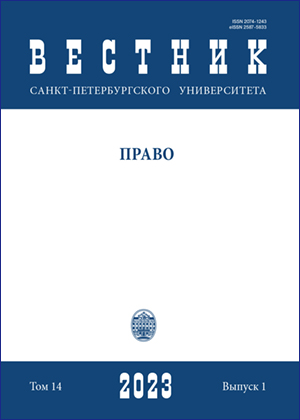New sources of criminal procedural and other judicial evidence in digital reality
DOI:
https://doi.org/10.21638/spbu14.2023.105Abstract
The attitude of law, practice and science to actively appearing sources of evidentiary information is controversial and belated. Besides some exceptions Criminal Procedure Code does not contain special rules for handling electronic information. Meanwhile evidentiary rules were formulated more than half a century ago and were principally oriented only on receiving analog information. Electronic traces and ways of displaying legally relevant information contained in them are sospecific that previous procedural forms are not usable nowadays. Procedural science develops the theory of electronic evidence on a sectoral basis. However, thecommunity of information-digital technologies which is lying in the core of impetuous growth of importance of electronic information predetermines the possibility of producing consolidated intersectoral rules. Examples of foreign science show the success of this approach. Criminally-remedial practice uses only sourcesby which you can get paper analogs or conduct an examination while proving. The extension of traditional inspection, seizure, search and examination to electronic information lowers its efficiency and does not provide a regime of secrets protected by law. A huge layer of electronic information remains outside the procedural proof. Its real value is confirmed by its use in law enforcement intelligence-gathering activities. Defensive side in criminal proceedings is deprived of even a few evidentiary opportunities in relation to digital information. Civil, Arbitral, Administrative proceedings are more open to recent evidences. Equal rights of the contestants contribute to the development of electronic evidence. A criminal procedure with a monopoly of the prosecution on it strengthens the accusatory bias and impoverishes the proof as a whole. A further spread in the share of electronic evidence in criminal procedural proving requires a change in approaches to it, a rejection of the exclusively classical rules for dealing with them, the extension of civilistic approaches to the relevant activities of the defense.
Keywords:
criminal process, judicial law, electronic evidence, arbitration process, screenshot, digitalization, provision of evidence
Downloads
References
Downloads
Published
How to Cite
Issue
Section
License
Articles of "Vestnik of Saint Petersburg University. Law" are open access distributed under the terms of the License Agreement with Saint Petersburg State University, which permits to the authors unrestricted distribution and self-archiving free of charge.






